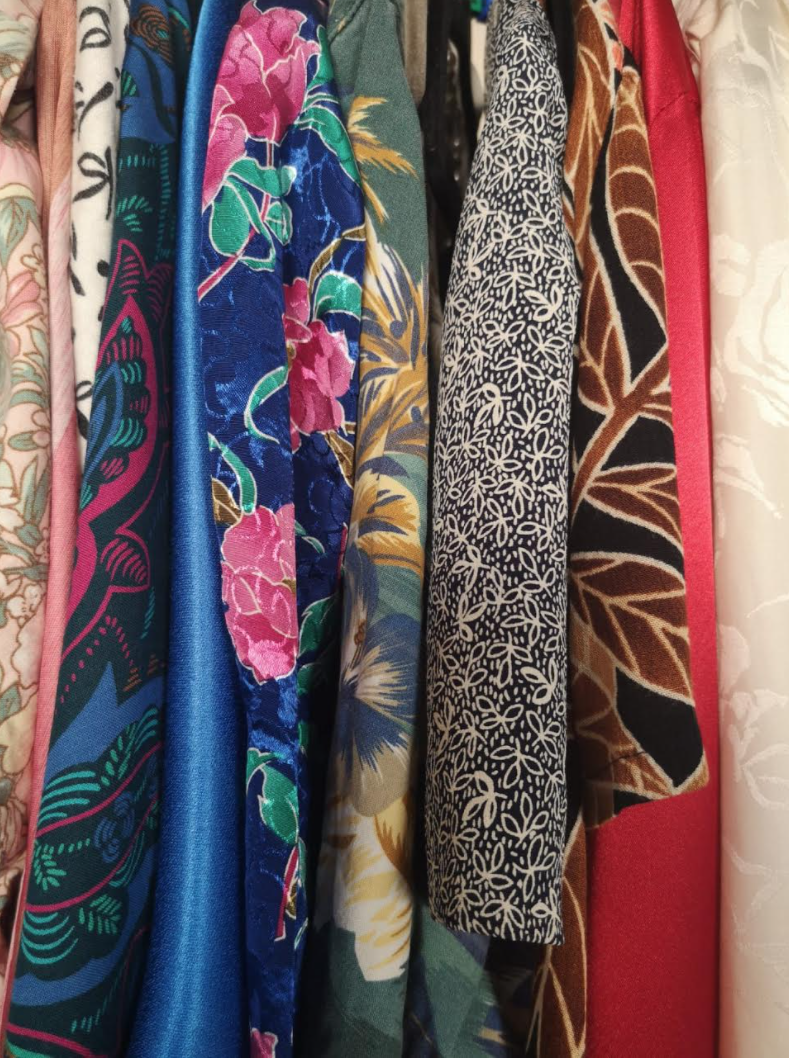The Depop debate: reselling items from charity shops

Entrepreneurial or unethical? While fashion marketplace app Depop gets more popular, charity shops get busier - but is that necessarily a good thing?
As Depop has gained popularity in the last few years more and more people have been selling clothes on the app found in charity shops for a profit, and more and more opinions on the topic have sprung up online.
For those who argue it is wrong to buy and price up items found in charity shops for a personal profit, the argument usually follows one of two lines:
1) It takes clothes away from people who rely on charity shops for their wardrobe, moving items out of their price range.
2) The charity receives only a small amount when, as can be seen from the profit made by resellers, they should be getting more.
For those who argue there is nothing wrong with the practice, the argument usually follows one of these threads:
1) There are plenty of clothes, maybe too many clothes, out there that would just end up in landfill. It is a way of recycling that benefits the environment.
2) It is entrepreneurial. It takes time and skill to curate items and style them, which justifies a profit.
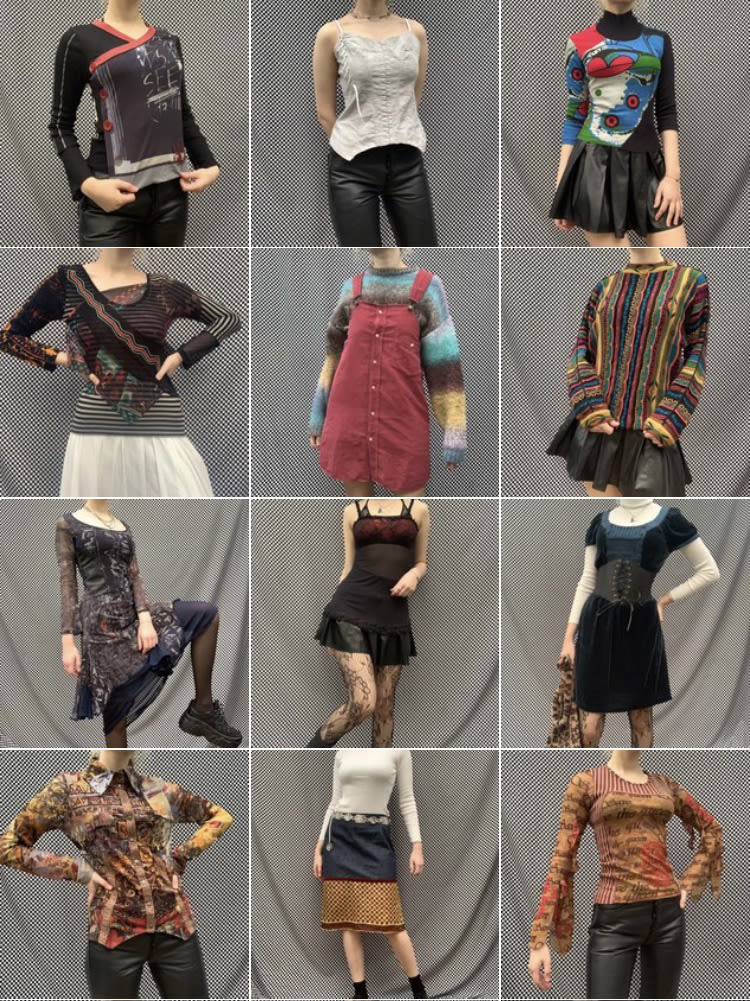
Social Media
As usual, Twitter has proven to be a site of debate for this topic.
One tweet which went viral last summer, after Depop downloads spiked, read:
if u buy stuff from charity shops Just to resell it on depop for an extortionate amount ... Stop it❤️
— alice (@mt_eddy) July 12, 2020
Another tweet that gained popularity in December 2020 read:
yes what a great job to go gut a thrift store of any cute shit it may have to resell it for probs double the price on depop :D pic.twitter.com/erDAEAc1ql
— 𝐳𝐨𝐞 𖤐 ₆⁶₆ (@v4mpgrI) December 28, 2020
When asked for their opinions, Twitter users found it difficult to make up their minds.
One user said: "I think it’s a tricky moral question and on the surface level it doesn’t feel very ethical.
"However, the garment has sold for max price at the charity shop and that money has gone to a good cause.
"As soon as ownership of the garment is yours, it is yours to do with as you wish."
Do you think it’s okay to buy something cheaply from a #charity shop and sell it for a large personal #profit (eg on a site like #ebay or #depop)?
— Amber-Louise Large (@AmberLLarge) December 27, 2020
Let me know your reasoning the comments! #journorequest
Another wrote: "I would like to think I'd tell the shop assistant that it was undervalued and could sell at a higher price point."
Some did not see any issue with the practice.
One Twitter user said: "It's 100% fine - you're helping 1) the charity shop by buying their items, 2) the customers on eBay/Depop by selling them something they want, and 3) yourself by profiting on the difference.
"It's a win-win-win!"
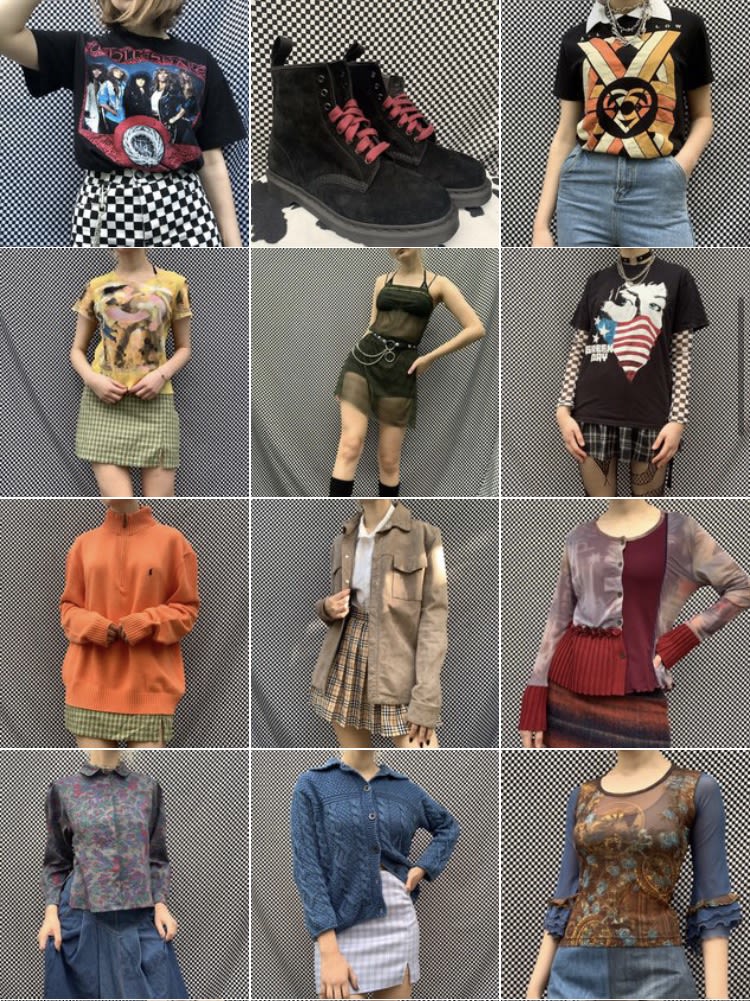
THE SELLERS
Katie Alexander, 22, is a paralegal who started running a Depop page with her sister during the first lockdown.
They started by selling their own clothes but soon began looking in charity shops for items to resell.
The most profit they have made from a charity shop item is £170.
This was a real Shearling Ashwood jacket.
Other charity shop finds on the page include a Fendi bag which currently has a high offer of £200.
Katie said she gets a sense of joy from people telling her how much they love the items she has resold.
She said: "It makes me so happy because I think that item has just been sat at the back of a shop and now someone is going to give it a good home.
"There are so many clothes out there.
"So many bags were left outside charity shops when they were first closed in lockdown.
"I just think there's so much waste."
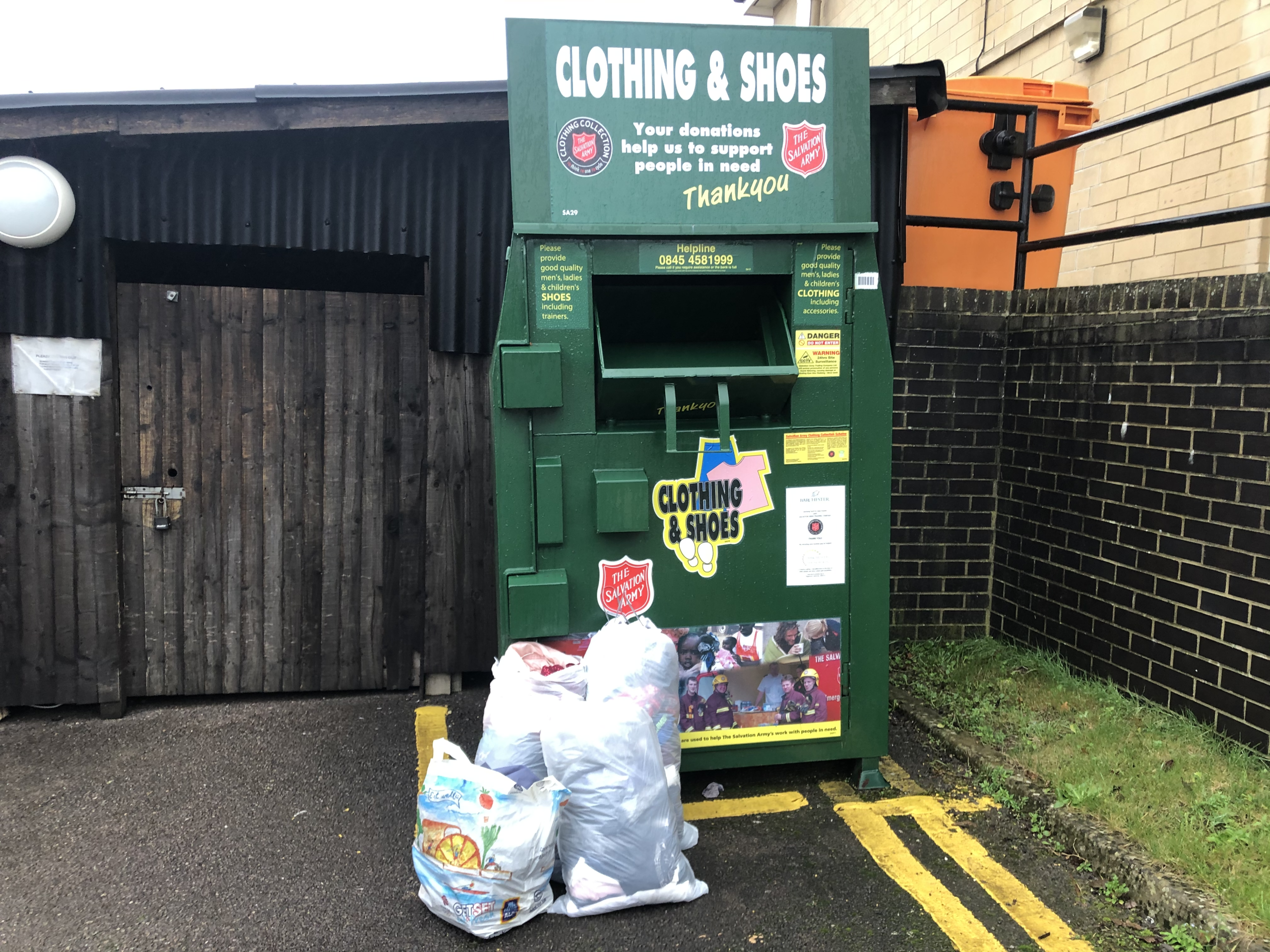
Bags of clothes left outside a full donation bin in December 2020.
Bags of clothes left outside a full donation bin in December 2020.
On making a profit from charity shops, she said she understands the argument against it but she believes charities are more aware of what they are selling in today’s economy and a lot of what she makes is reinvested into the charity shops anyway.
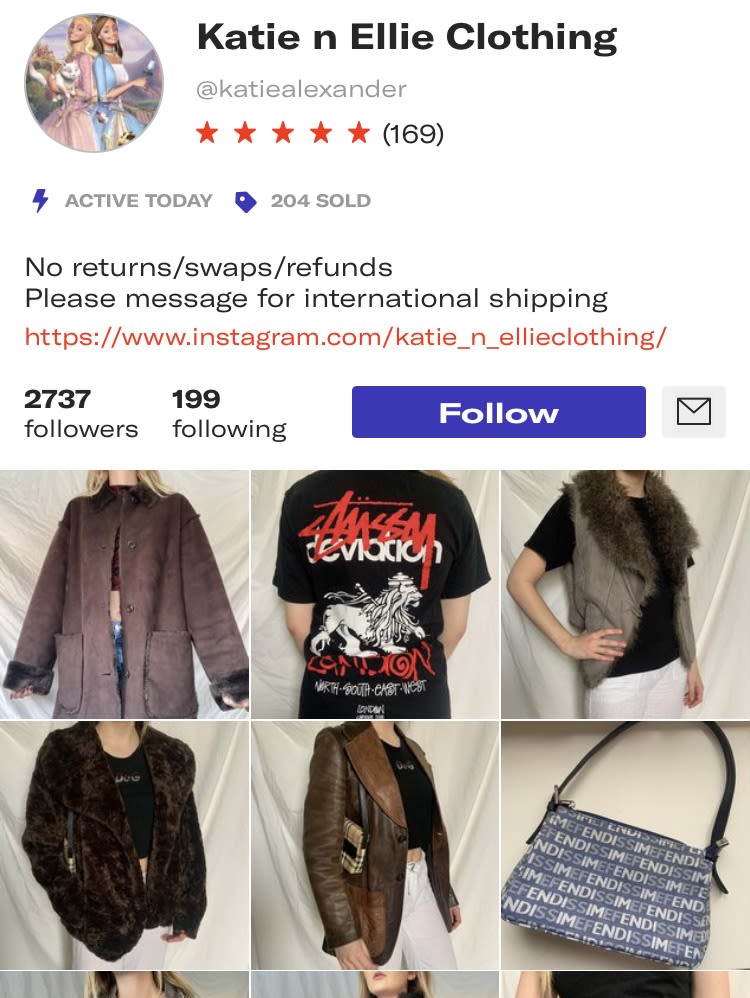
Katie is considering studying a masters next year which the profits could help her pay towards.
![[object Object]](./assets/znT0SCz2L0/img_1153-750x802.jpeg)
![[object Object]](./assets/XUpTwLktLM/img_1154-750x811.jpeg)
![[object Object]](./assets/G4h1GWTzRh/img_1156-750x818.jpeg)
Emma Grambovskis, 17, is a student who started her Depop account about two years ago to make some money while still in school.
Last year she made almost £7000 selling clothes found in charity shops and car boot sales on her Depop shop @kapelput.
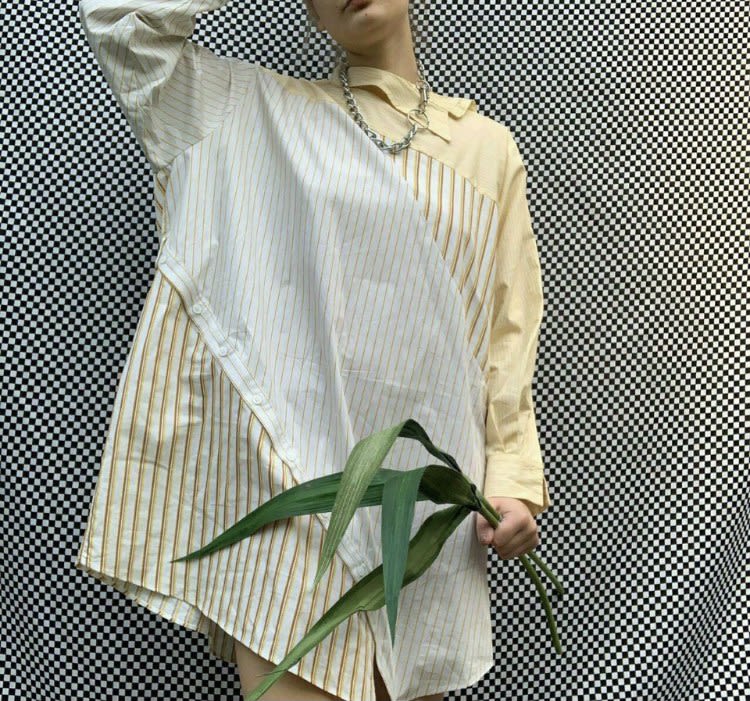
She said: "Not everyone has the time or energy to go out of their way to find particular unique pieces of clothing.
"Buying from big businesses and supporting fast fashion is what is killing the industry - not to mention the planet.
"My prices are fair and I believe my shop is entrepreneurial.
"I am determined to build a name for myself and Depop is where I am starting."
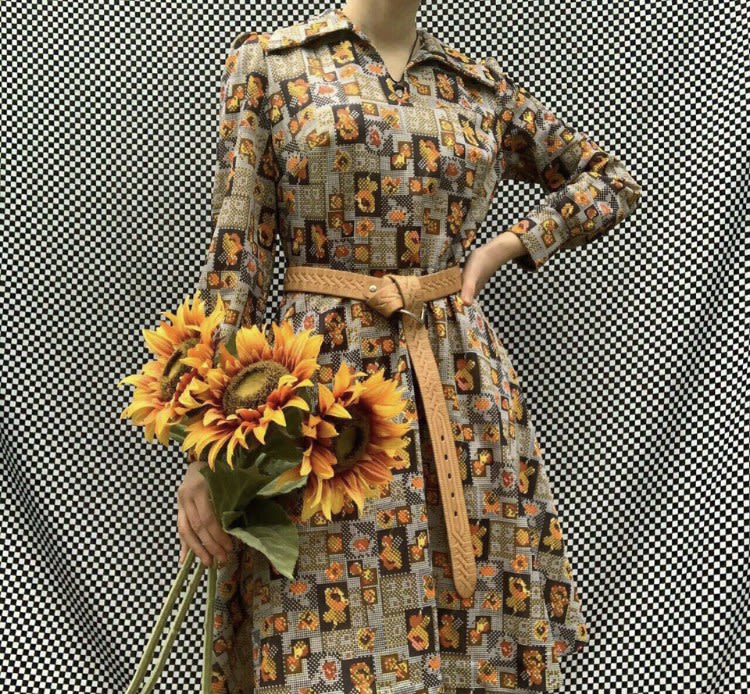
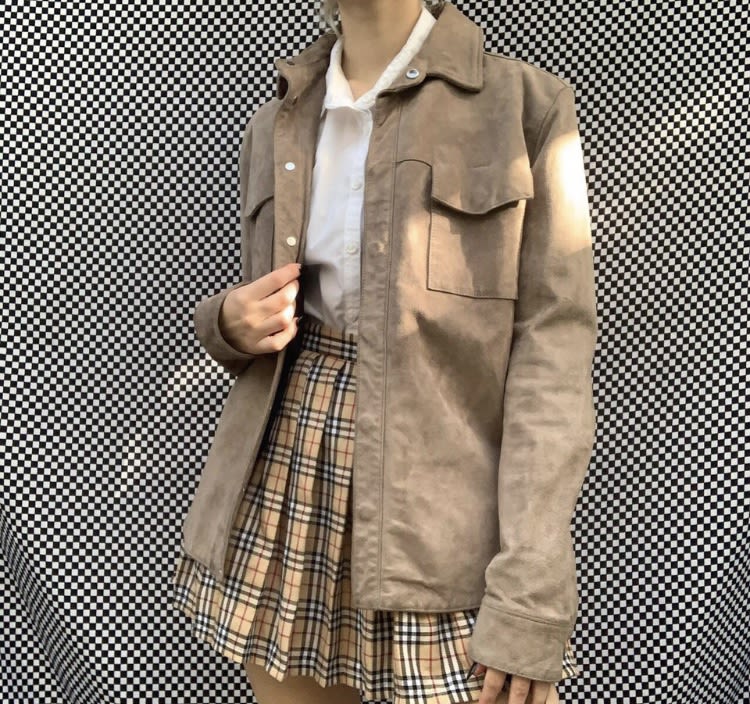
Grace Ison, 26, is a cabin crew member who started her Depop account around four years ago.
In 2020 she had extra time to work on her Depop shop @gracevintageclothing while she was on furlough, and she made roughly £14,000.
Grace used to buy a lot of her stock from charity shops but now she only sources about 5-10% of her items from them.
The largest profit she has made is about £50 from a heavy wool, vintage coat that had been put on sale in a charity shop.
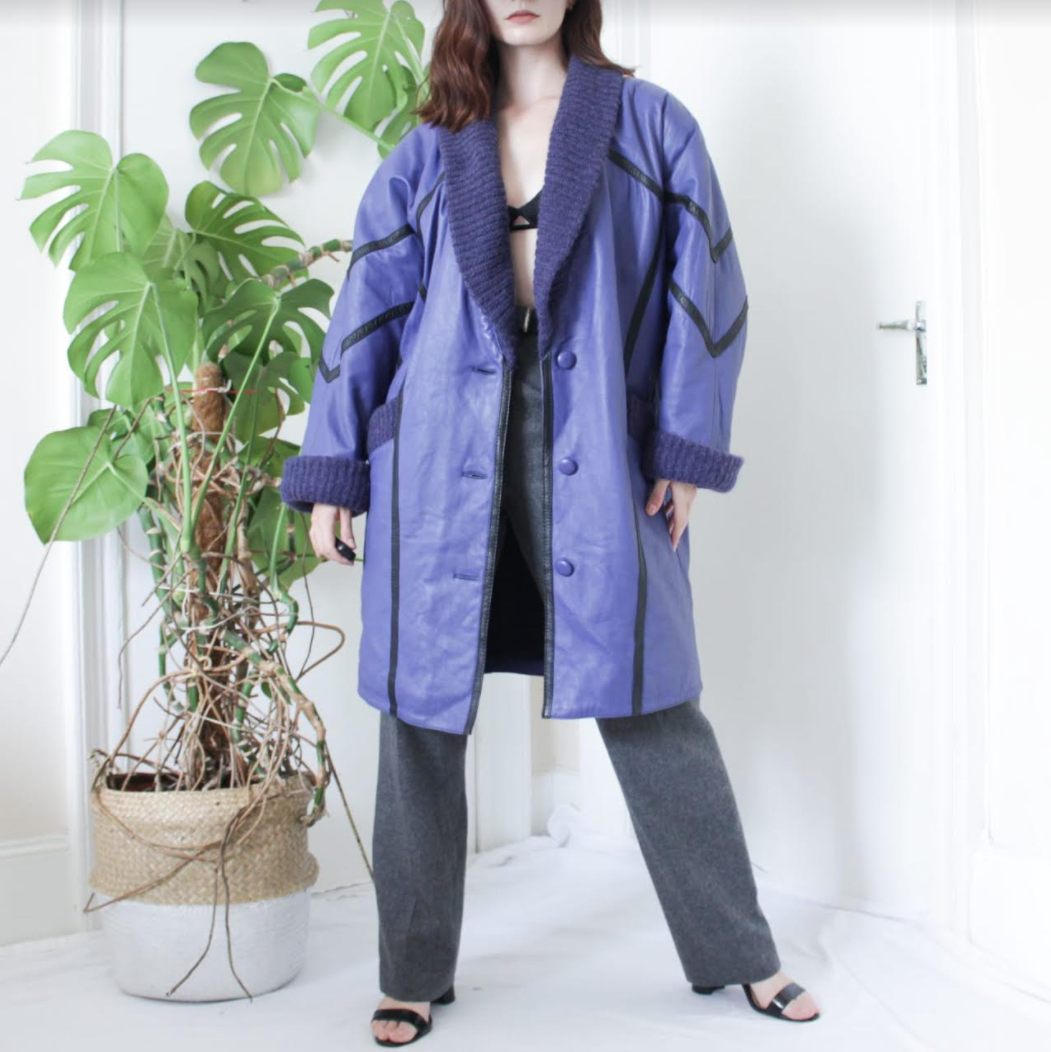
She said: “I know there's an argument that re-sellers are taking away from people who rely on charity shop clothes but I have never been into a charity shop where every rail isn't bursting with a wide range of clothing items.
“So no, I don't think it is wrong to be buying something from a charity shop and selling it for more.
“It takes items out of the landfill, gives money to the charity shop and helps support people with small businesses who otherwise might not have an income.”
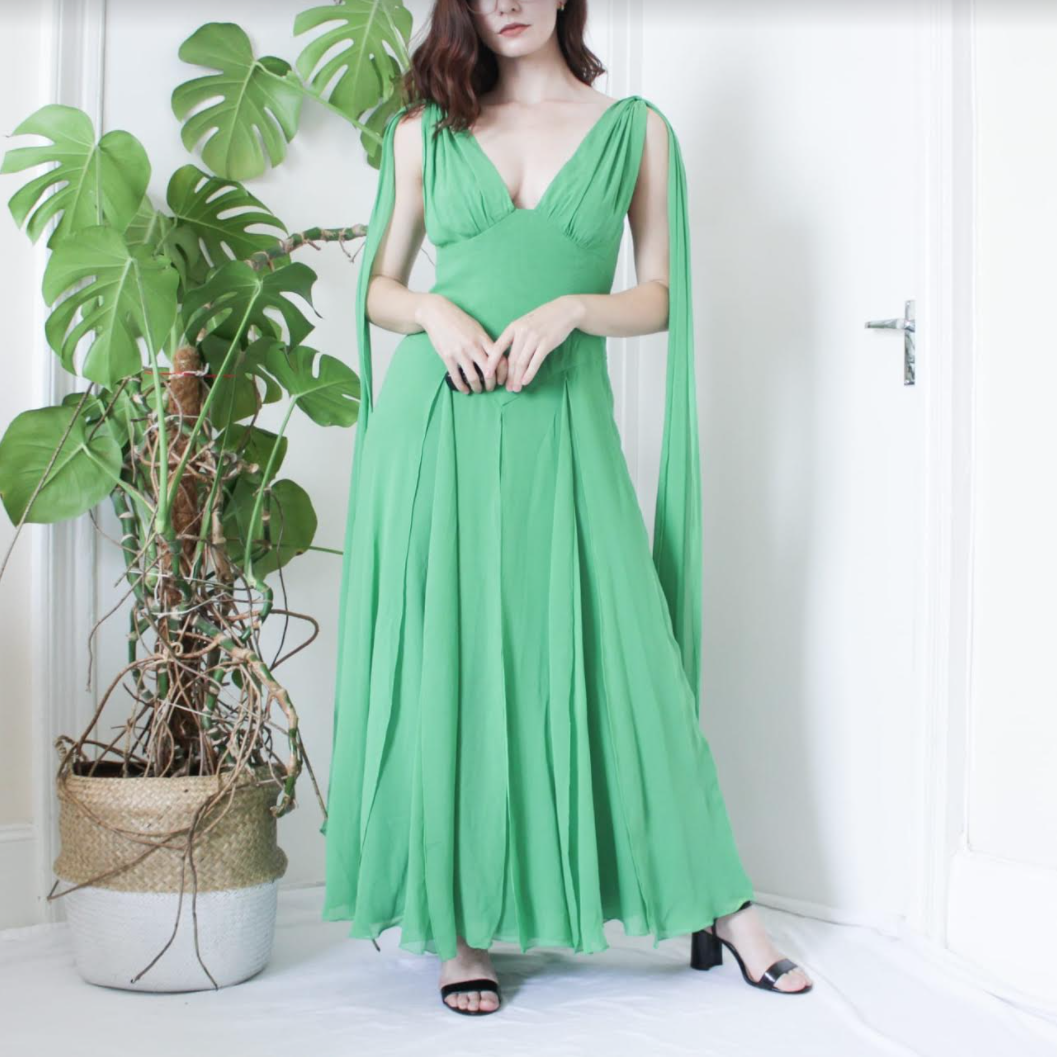
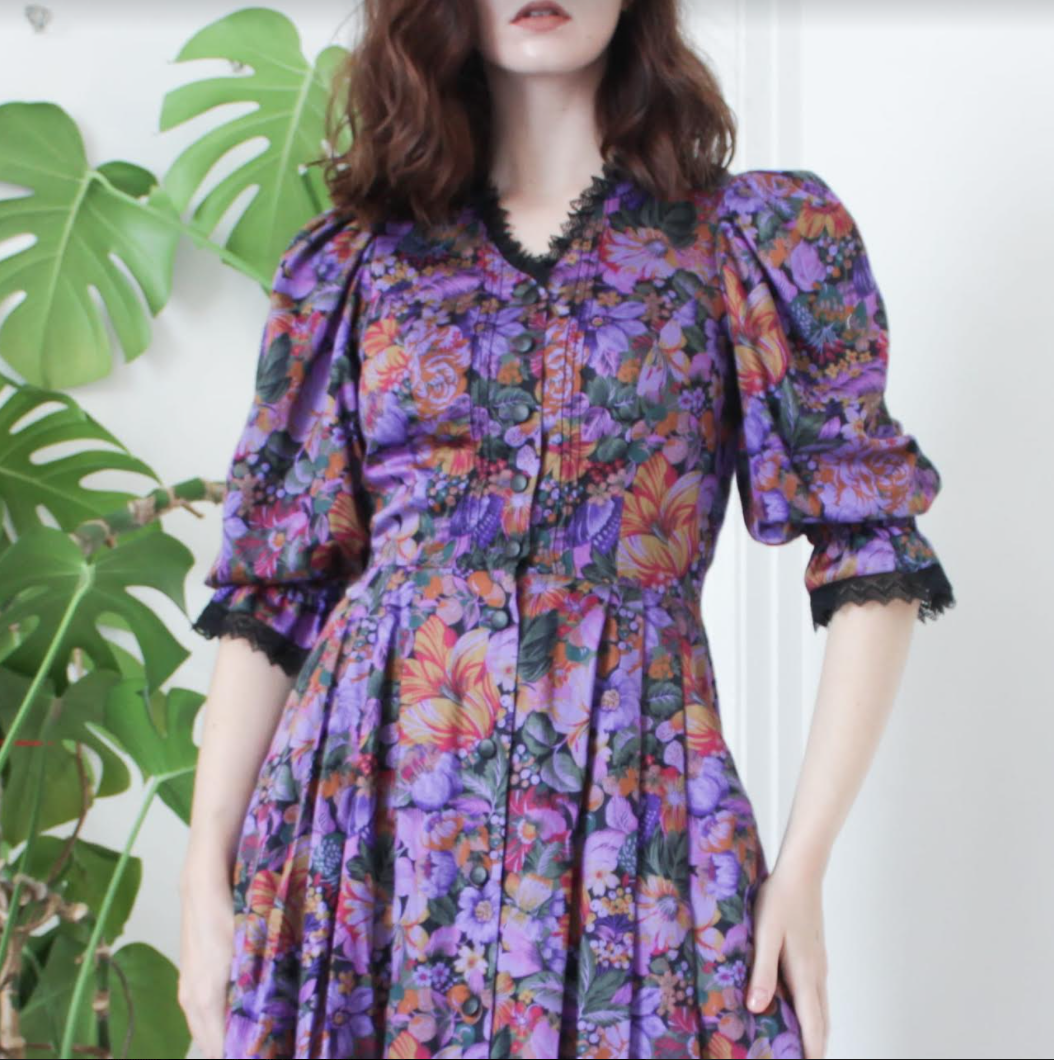
The Charities
Charities can also sell on Depop, and the application will waive the usual 10% 'Depop fee' for registered charitable organisations.
Some, such as disability equality charity Scope, have also set up their own eBay shops.
Retail Operations Manager David Standish said:
“We appraise our donations carefully.
“When we see items that are particularly valuable, we try to make the most of them.
“We also know that many people come to charity shops because they enjoy hunting out bargains at great prices.
“Ultimately it’s the customer’s choice what they do with their purchase.
"But we always try to raise as much money as possible from the public’s kind donations to fund our work with disabled people and their families.”
Having a clear out after the festivities? Save it for Scope!
— Scope (@scope) January 8, 2021
Scope’s charity shops need your donations of warm winter clothes. Each bag you donate raises £20!
Please hold on to the items at home until our shops are open again. pic.twitter.com/K4kzB4TFMZ
The British Heart Foundation's eBay shop sells 120,000 items each year and its Depop shop draws in a younger demographic.
Retail Director Allison Swaine-Hughes said:
“It’s fantastic to see more people are buying and selling preloved, as it means more items being reused and saved from going to waste.
"We train all of our shop teams in recognising the true value of donations so that everything we sell in our stores and online, goes for the absolute best price."
The BHF funds research on heart and circulatory diseases. Check out their 2020 highlights video below.
As 2020 draws to a close, we're taking a moment to reflect on some brilliant moments and highlights from the past 12 months.
— BHF (@TheBHF) December 31, 2020
We want to say a huge thank you to everyone who has shown their support this year. ❤️ pic.twitter.com/URjmcCC3Zv
Where do you stand in the Depop debate? Let us know!
Featured image credit: Grace Ison
